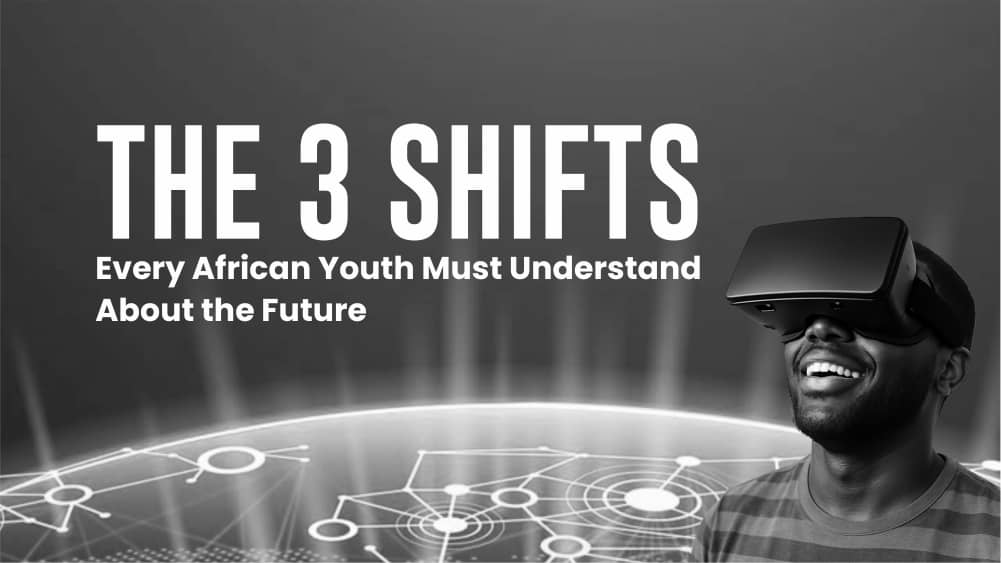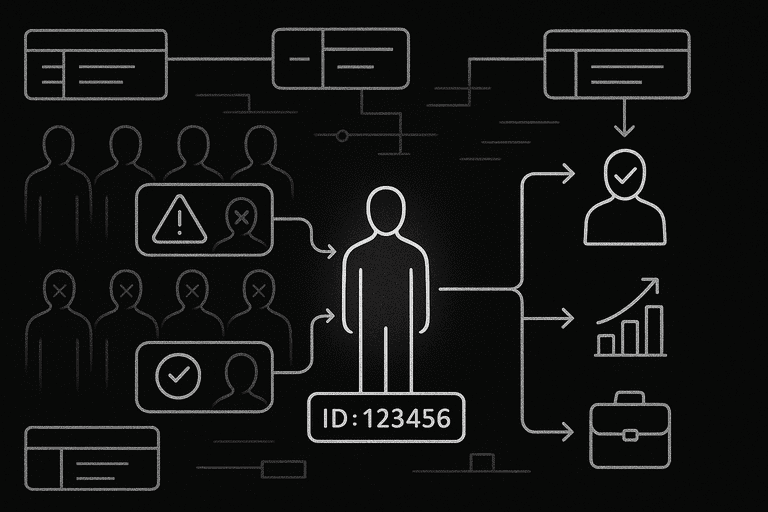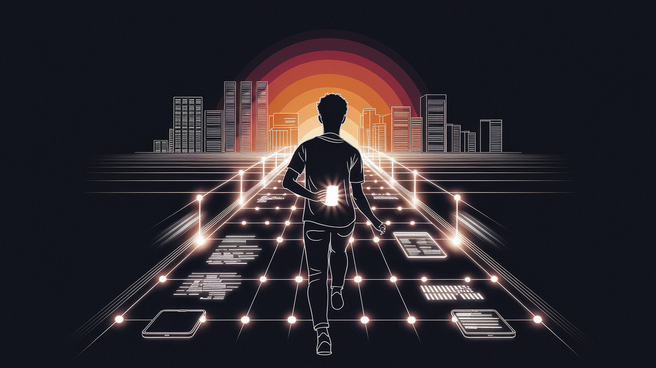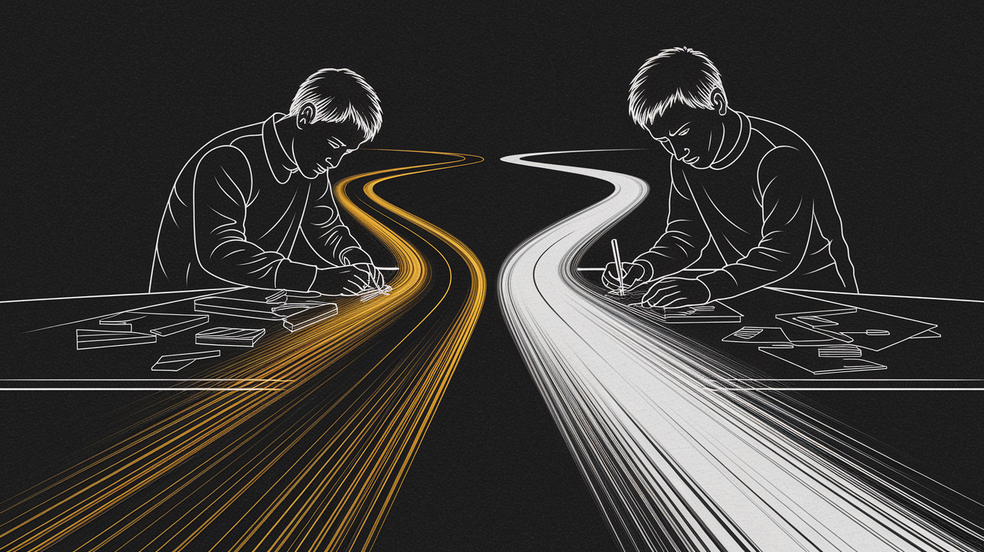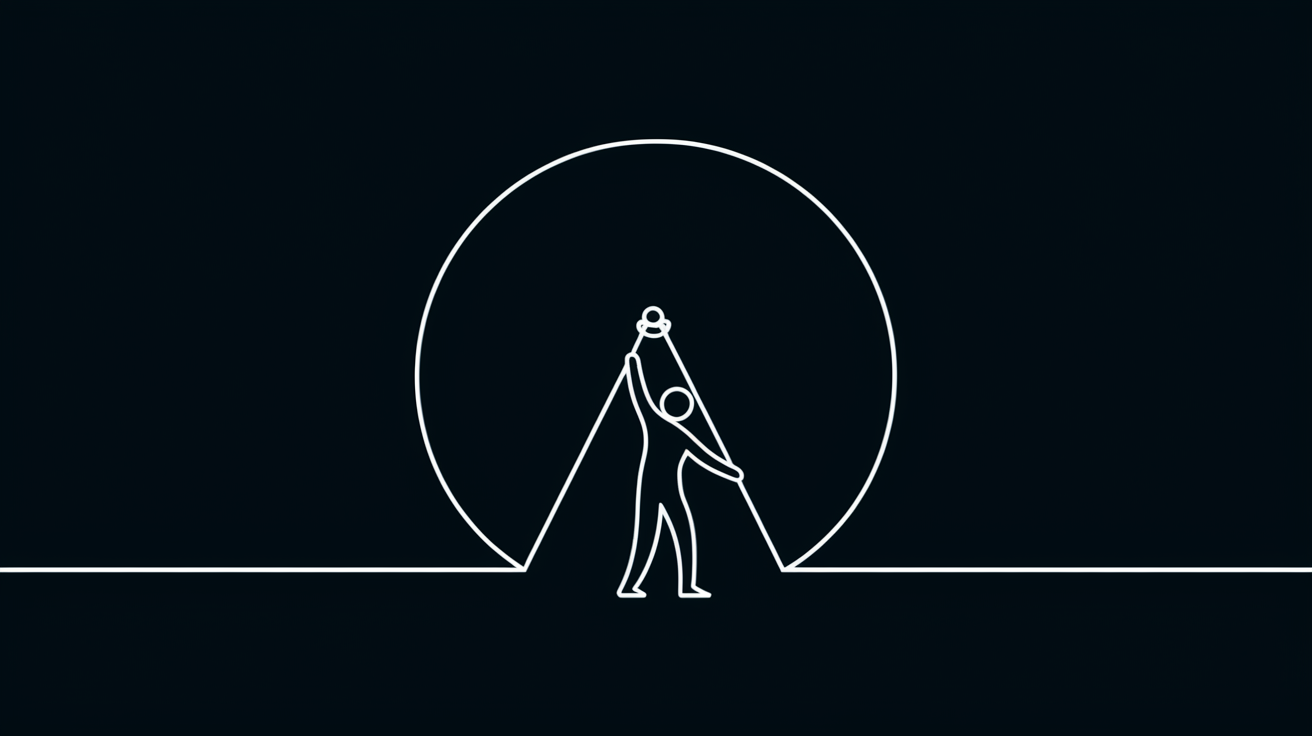We are on the verge of a new economy: the digital economy. This new economy relies on automated robots and artificial intelligence to carry out most tasks that currently make up traditional day jobs.
Over the past year, I’ve been interested in learning about “the future of work,” I have read over 100 scholarly articles, read a few books on the subject, and carefully listened to thought leaders on the subject of “the future of work”.
One thing was consistent: the possibility of artificial intelligence replacing most of the jobs we have today.
But before all this curiosity started, in 2021, I got a job with a company in the US as a software engineer during the lockdown period. During this time, I saw and studied the trends of high-demand software engineering roles. Companies worldwide were hiring and looking for software engineering talents, even from Africa. I knew a lot of friends and colleagues who also got employment overseas.
This remote job era, particularly during the pandemic, changed people’s lives. People were feeling positive and happy, and even those who never thought they could work for a big company like Facebook while living in Nigeria were amazed.
During this time, the terms “Tech Bro” or “Tech Babe” emerged to refer to individuals in the tech industry, especially software developers and UI/UX designers, who appeared to be earning substantial incomes as tech workers.
Around 2022, we began to notice changes in the job market. Jobs that used to be in high demand were becoming less popular, and many people were losing their jobs, especially at big technology companies.
But just before this period, in 2020, to be precise, Elon Musk acquired Twitter for $44 billion.
Soon after, he fired 80% of Twitter staff. That’s upward of 6,000 people.
This wasn’t the only case of tech layoffs or layoffs in general. Headlines were flooded with news of companies deciding to downsize, stripping people of their livelihood and leaving the population worried if they were next on the chopping block.
Everyone I know who was in the tech industry became worried, even myself. This anxiety intensified with the release of ChatGPT 3.5, and almost everyone, including the media, said that artificial intelligence could replace jobs, especially jobs that computers or machines could do better.
According to Elon Musk in an interview:
“AI poses one of the most significant risks to civilisation and can undoubtedly cause significant disruption to the job market.“
With all of this information, I embarked on personal research to understand what has changed or what is changing that is causing the narrative of AI taking away our jobs. How can we position ourselves strategically for what is to come? What will the future of work look like?
So, my friend, welcome to the future of work.
What is the future of work?
The future of work is a concept that describes how the world of work (the nature of work, the workers and their skills, and the workplace) may evolve in the future.
Most importantly, the work we do today, how we do it, and who does it will all change. As we adapt to these shifts, areas like skill development and how companies hire will also be affected.
With technology advancing so quickly, it’s predicted that most of today’s schoolchildren will eventually work in jobs that don’t exist. Dell and the Institute for the Future report suggests that 85% of the jobs available in 2030 haven’t been created yet.
However, this future comes with challenges. Automation is a significant source of worry. People are growing concerned about job loss and how it will impact their livelihoods as machines perform more tasks previously performed by humans.
But from the perspective of productivity, this is good news, right? I mean, if you have used AI, you’d agree with me that, to a great degree, it has made you more productive.
Though the “Future of Work” idea isn’t new, it’s gained fresh attention in recent years. This is primarily because the COVID-19 pandemic sped up technology adoption and flexible work setups, like remote work, reshaping how we think about work today.
So, where do we go from here?
Paradigm Shift
Understanding the future of work is as important today as it was in the past. It is crucial for us to have a proper paradigm shift to embrace these changes and prepare for them.
That’s why it’s crucial to learn about it now. By doing so, we can not only prepare for the risks and seize the opportunities ahead but also shape the future in a way that benefits us even more.
The idea of people being displaced by new technologies has existed for a long time. History shows that whenever there’s a breakthrough in technology, those who were once skilled often find themselves outpaced. This is because new innovations result in the emergence of new skill requirements, leading to a phenomenon referred to as “skill-biased change.”
I don’t mean to alarm you, but if you think things are moving fast now—just wait! Change is accelerating, and today is the slowest it will ever be.
When ChatPGT 3 was released, researchers and scientists predicted that it would take about 50 years for ChatGPT 4 to be released, but a year later, version 4 was released. This is just to let you know that things are moving faster than you can ever imagine.
I firmly believe these trends won’t replace humans; they’ll simply create new jobs.
Building on the last industrial revolution (which was powered by computing), this fourth industrial revolution—now driven by automation and intelligent technologies—will continue to reshape the future of work. Almost every job will evolve as AI and robots begin to work alongside us.
I believe that AI and robots will not take our jobs. They will only do what they are good at, which is routine and predefined tasks. It will be a world where we will work with these technologies to be more efficient in our jobs.
And there’s a reason for this shift: machines are undeniably better than humans at repetitive, routine tasks. That’s just a fact.
The people who will thrive in this digital transformation will be those with the right mix of future-focused skills. Skills, more than ever, will be the key to success. And while that might not come as a surprise, you may be surprised by which skills will be in the highest demand.
Trends
While we can’t predict the future accurately, we can understand its direction by looking at its major forces and trends.
Large-scale trends include technological disruption, climate change, demographic shifts, and geopolitics. However, there are also more focused trends influencing how we work.
Two of the most influential trends shaping the future of work are the gig economy and the creator economy. These trends are redefining traditional work models, offering people more freedom, flexibility, and opportunities for creativity. However, they also come with their unique challenges.
Let’s take a brief look at each of them.
The Gig Economy
The gig economy has boomed in recent years, driven by platforms like Uber, Lyft, Fiverr, and Upwork. Many people are drawn to gig work because of its flexibility—whether delivering food, freelancing as a designer, or driving passengers.
It offers the freedom to be your own boss, set your own hours, and choose which jobs to take. It sounds like the ideal setup, right?
However, while the gig economy brings more independence, it also introduces uncertainties. Many gig workers don’t have the security of a regular paycheck, health benefits, or a retirement plan. Without the safety net of traditional employment, gig workers are often left to deal with job insecurity independently.
Still, despite these challenges, the gig economy isn’t going anywhere. It’s all about finding a balance between the freedom it offers and the unpredictability that comes with it.
The Creator Economy
While the gig economy revolves around service-based work, the creator economy is focused on building content and engaging an audience. You’ve probably noticed the rise of YouTubers, TikTok influencers, and Instagram content creators. These individuals are using online platforms to turn their passions and hobbies into profitable ventures.
What’s exciting about the creator economy is that it empowers people to connect directly with their audience and make money from their influence. Whether it’s through sponsored posts, selling products, or creating digital content, creators are finding new ways to earn a living while doing what they love.
“According to a 2023 report by SignalFire, more than 50 million people identify as creators, and platforms like YouTube have paid over $30 billion to creators in the past three years.”
However, like the gig economy, the creator economy comes with its own challenges. Success is far from guaranteed, and the competition is fierce. You’re not just competing locally; you’re up against creators from all over the world. Plus, building a loyal audience requires time, effort, and a constant flow of creative ideas.
Future Ready
The world is changing faster than ever, and it’s becoming more complex and competitive. New technologies are arriving at lightning speed, and new jobs are constantly emerging. The skills that once led to success 20 years ago are now outdated. To thrive today—and in the future—new skills are essential, and even more will be needed as the job market evolves.
This means people must keep learning and reinventing themselves throughout their lives, even into retirement. With an aging society, many of us may find ourselves in a state of semi-retirement, dipping in and out of work well past the traditional retirement age.
Traditional education, from high school to university, is being disrupted, and new, more flexible ways of learning are emerging through digital tools.
Being future-ready means understanding the possible futures ahead, preparing for them, and taking steps to shape the most desirable outcomes. It’s about having foresight, embracing innovation, and staying tech-savvy.
Those who will successfully navigate this wave of digital transformation will be the ones with the right mix of essential future skills. Skills will be the defining factor for success. While that might not be surprising, you might be caught off guard by which skills will be in the highest demand.
Conclusion
So, my friend, we know the world is changing, and the way we work is evolving. But what if you could prepare for the changes that are still on the horizon? What if you could future-proof yourself by gaining the skills you’ll need tomorrow, starting today?
That’s exactly why we’re creating FluideMinds. At FluideMinds, we believe that both individuals and organizations can thrive in this ever-changing world by embracing a mindset of lifelong learning.
We’re building a platform and a community designed to help people stay ahead of the curve. We’ll provide insights into the future of work, guidance on the skills you’ll need, and a supportive community with which to grow.
If you want to be part of this journey, we invite you to follow us across all our platforms and join the mission!
So, until I see you in the next one, take care.
–Destiny

